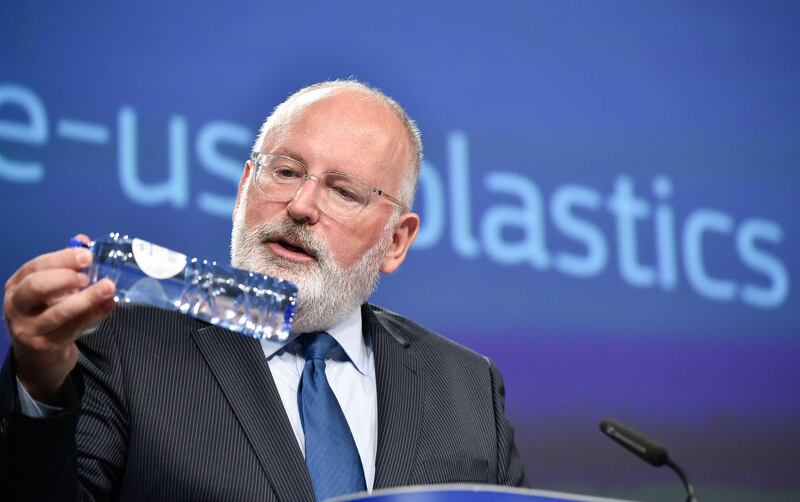The European Union on Monday proposed a bloc-wide ban on single-use plastics such as straws, cutlery and cotton buds while urging the collection of most plastic drinks bottles by 2025.
The set of proposals are part of a growing EU drive to rid the environment of plastic waste which has begun showing up in the food chain.
"Plastic waste is undeniably a big issue and Europeans need to act together to tackle this problem," EU First Vice President Frans Timmermans said.
"Today's proposals will reduce single-use plastics on our supermarket shelves through a range of measures."
The proposals call for banning banning plastic cotton buds, cutlery, plates, straws, drink stirrers and balloon sticks, but it did not set a deadline.
These items must all be made from sustainable materials instead, according to the plan which must be approved by the 28 EU member countries and the European Parliament.
Member states must reduce the use of plastic food containers and drinks cups by promoting alternatives for sale or ensuring they are not offered free.
Under the plan, producers must contribute to the costs of waste management and will be offered incentives to develop less polluting alternatives. For example, it calls for producers of plastic fishing gear to cover the cost of waste collection from port reception facilities.
The plan also requires member countries to collect 90 per cent of single-use plastic drinks bottles by 2025, through deposit refund schemes, for example. Producers would have to clearly label products and inform consumers how the waste should be disposed of.
_______________
Read more:
[ Britain announces plan to ban single-use plastic products ]
[ Hilton hotels vow to ban plastic by end of 2018 ]
[ What happens to a smartphone after it is thrown away? ]
_______________
The European Commission, the EU's executive arm, said businesses would benefit from a single set of rules for an EU market of around 500 million people.
It said it would encourage EU companies to develop economies of scale and become more competitive in the "booming" global market for sustainable products.
The proposals, along with one in January for all plastic packaging in Europe to be recyclable by 2030, follows China's decision to ban imports of foreign waste products for recycling.
The EU currently exports half of its collected and sorted plastics, 85 per cent of which goes to China.






